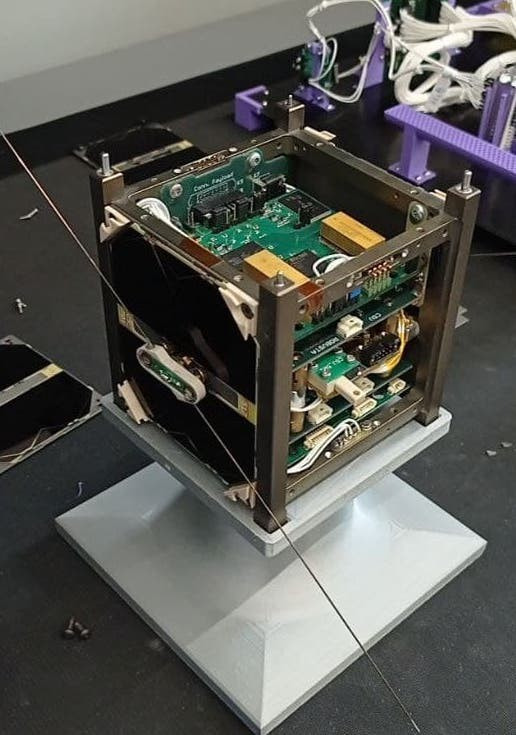The Republic of Djibouti has launched its first satellite, Djibouti 1A, today, from the Vandenberg Space Force Base onboard the SpaceX Transporter-9 dedicated SSO rideshare mission.
Developed through a joint capacity-building programme between Djibouti and its technical partner, the Centre Spatial Universitaire de Montpellier (CSUM), Djiboutian engineers and technicians in France designed, constructed and tested the satellite.
Earlier in March, the satellite passed its vibration tests in a joint CSUM/Latecoere facility in France. Furthermore, the result showed that the test levels and duration fully comply with the launch parameters.
In a statement by the Djibouti Minister of Higher Education and Research, Mr Nabil Mohamed Ahmed, he said, “We have put in place all the necessary elements to succeed in this project: firstly the selection of Djiboutian students, because the objective was to make the satellite but not to buy it, and have it manufactured by our students to make this technological leap and say in an uninhibited way that Djibouti is capable of manufacturing a satellite, launching it, collecting results for the climate but also getting started in development perspectives. The result is that 10 technicians and engineers were trained.”
According to the minister, the satellite project resulted in the training of 10 engineers and technicians, and this team worked with all the companies involved in all aspects of satellite design, manufacturing and launch of the satellite and improved the software.
The satellite will help the country access country-wide, real-time data from climatological and seismic stations, such as temperature, rainfall, river depth and hydrometry across the country. With the new nanosatellite, policymakers can access relevant high-definition spectral information to enhance Agriculture and better track environmental changes nationwide.
Watch the launch here.
Credit: Space in Africa



